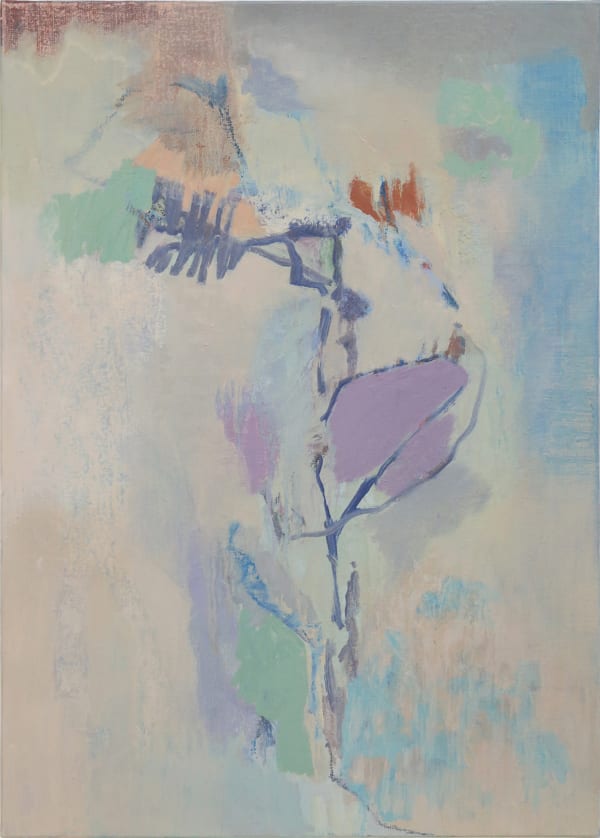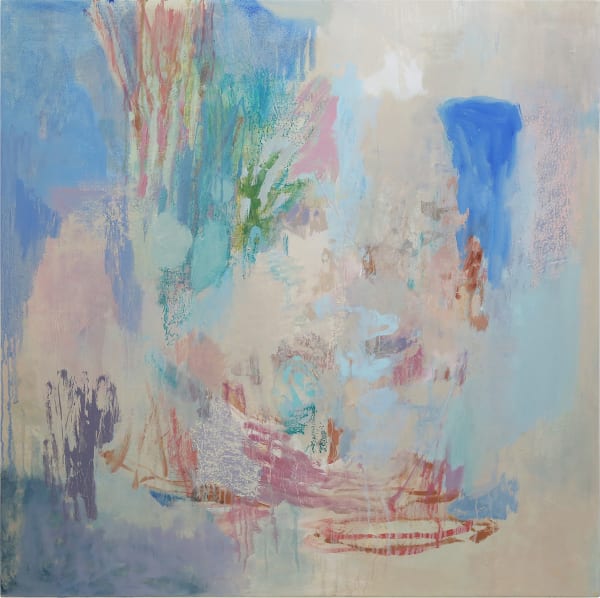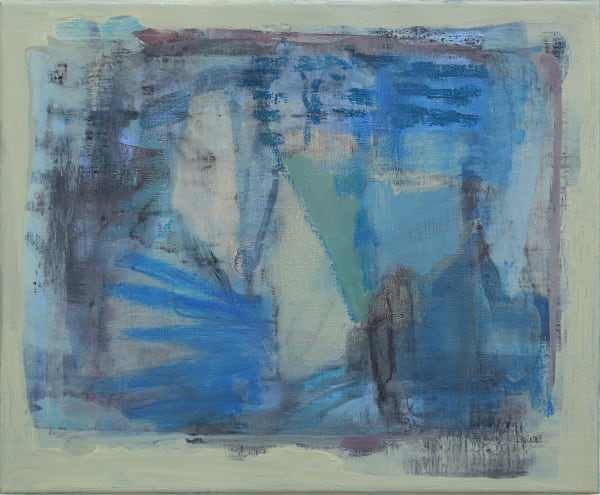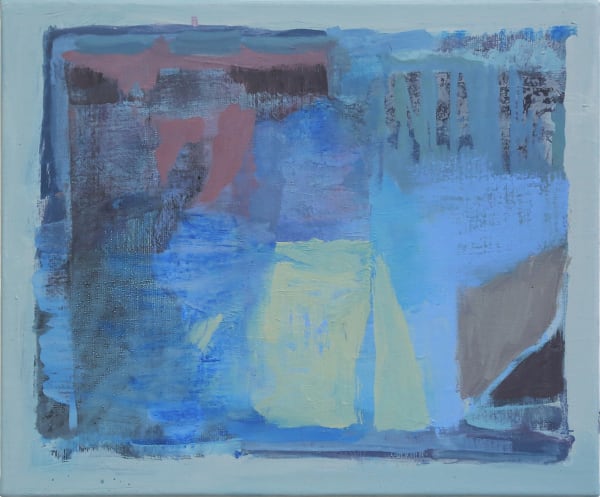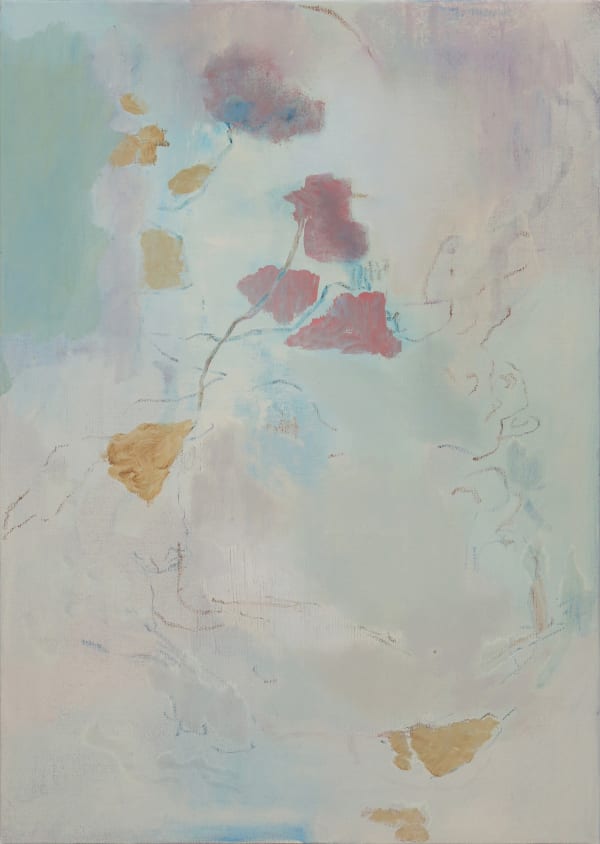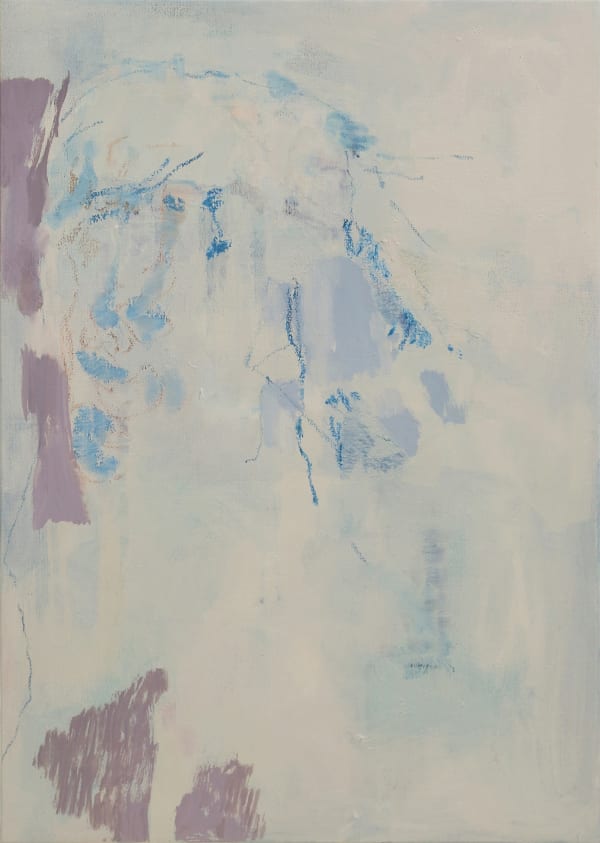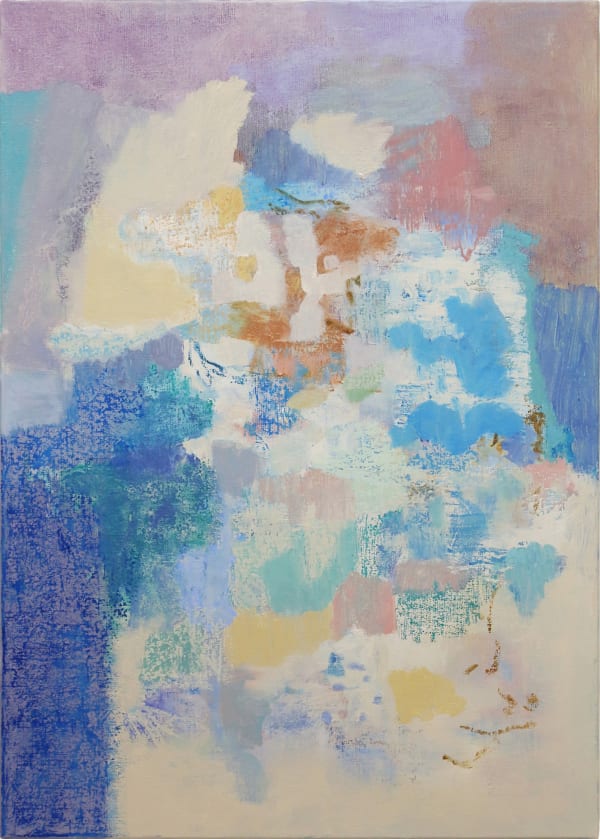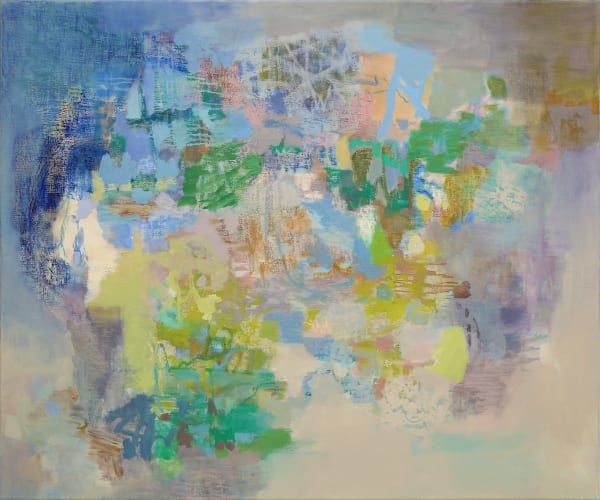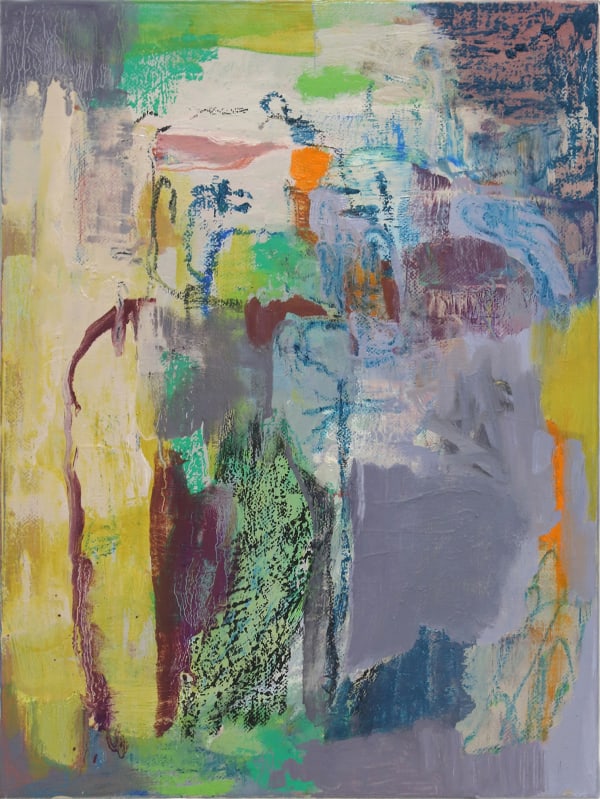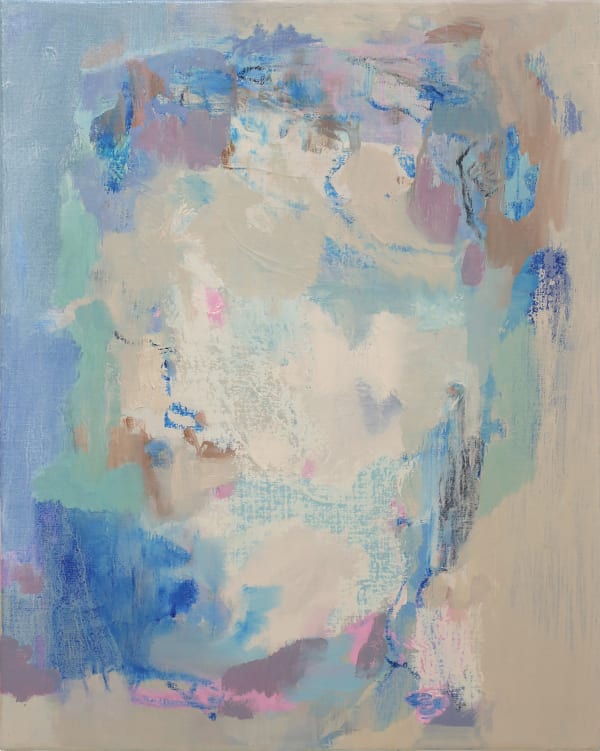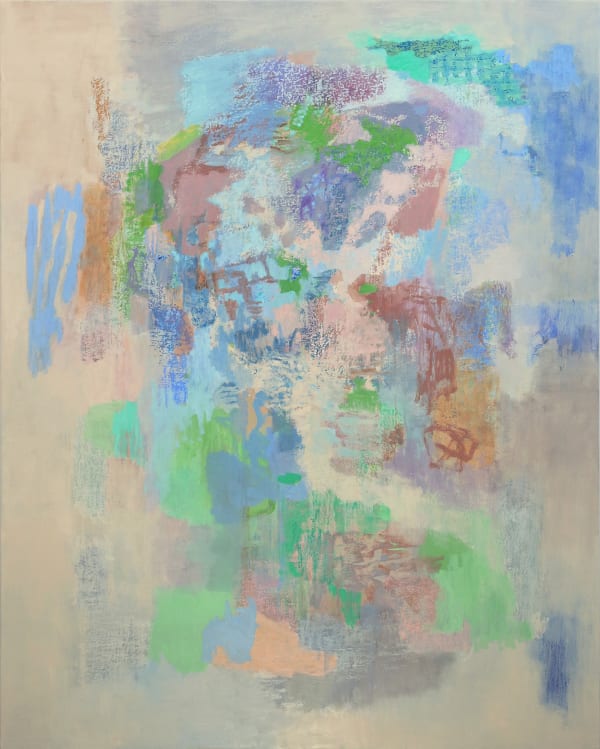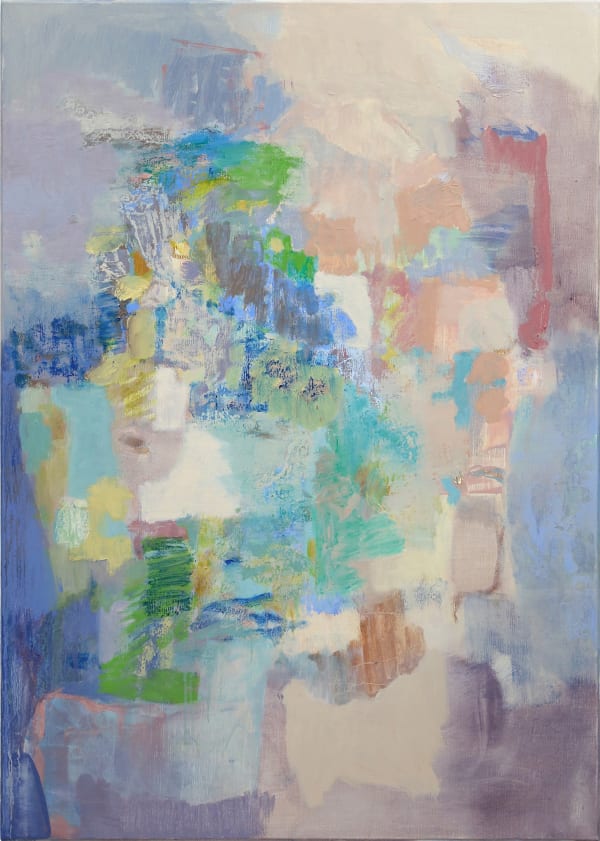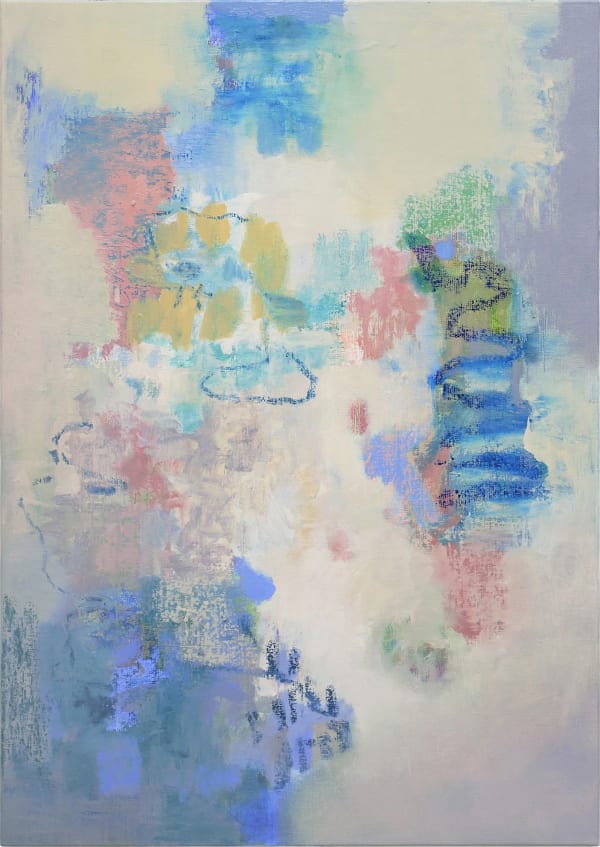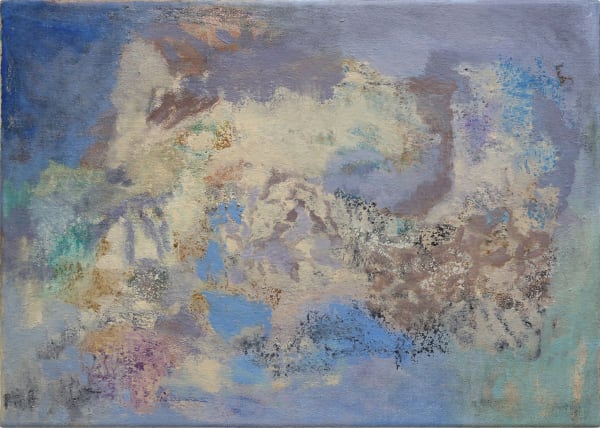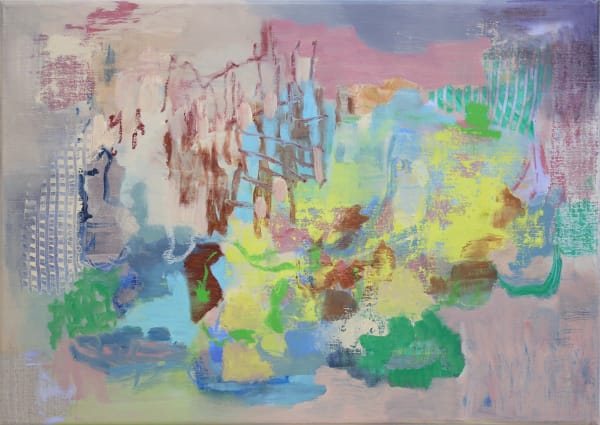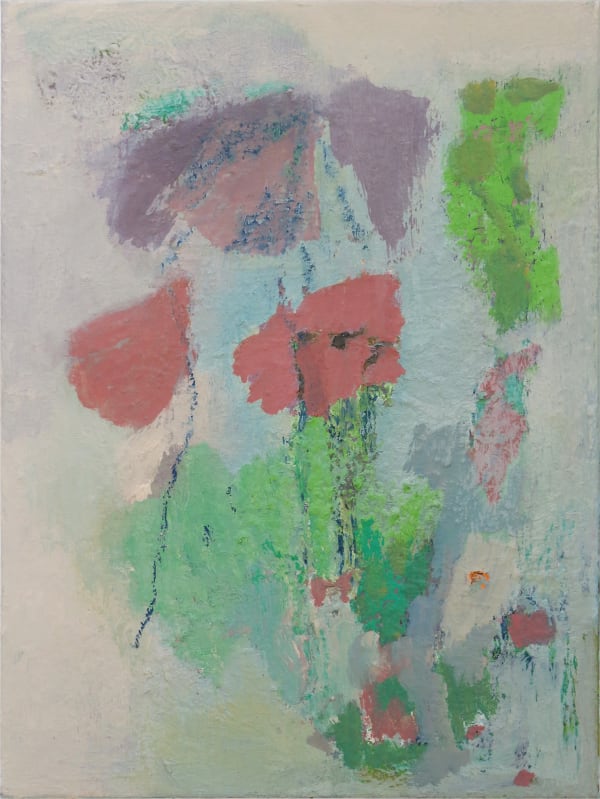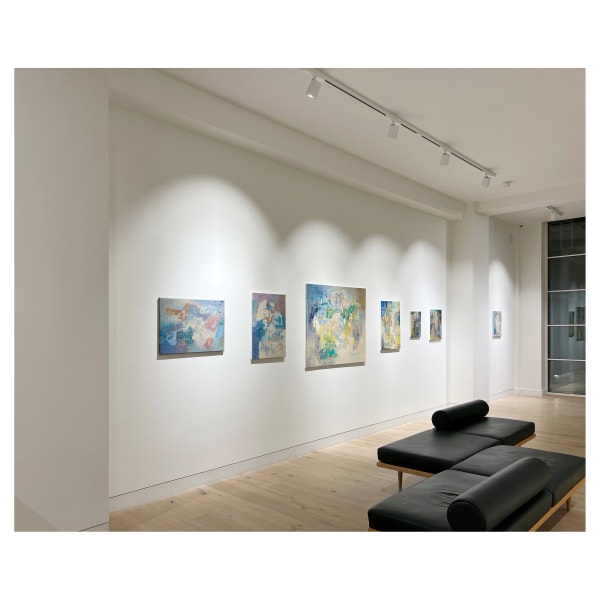-
 Diane HowseTrace, 2024Oil and oil stick on linen70 x 50 cmSeries: Ornament of DustSigned and dated verso£4,000.00
Diane HowseTrace, 2024Oil and oil stick on linen70 x 50 cmSeries: Ornament of DustSigned and dated verso£4,000.00 -
 Diane HowseSlip Stream, 2024Oil and oil stick on cotton canvas107 x 107 cmSeries: Ornament of DustSigned and dated verso£7,500.00
Diane HowseSlip Stream, 2024Oil and oil stick on cotton canvas107 x 107 cmSeries: Ornament of DustSigned and dated verso£7,500.00 -
 Diane HowseCluster, 2024Oil and oil stick on linen25 x 30 cmSeries: Ornament of DustSigned and dated verso£1,200.00
Diane HowseCluster, 2024Oil and oil stick on linen25 x 30 cmSeries: Ornament of DustSigned and dated verso£1,200.00 -
 Diane HowseSlow Glow, 2024Oil and oil stick on linen25 x 30 cmSeries: Ornament of DustSigned and dated verso£1,200.00
Diane HowseSlow Glow, 2024Oil and oil stick on linen25 x 30 cmSeries: Ornament of DustSigned and dated verso£1,200.00
-
 Diane HowseAssembly, 2024Oil and oil stick on linen70 x 50 cmSeries: Ornament of DustSigned and dated verso£4,000.00
Diane HowseAssembly, 2024Oil and oil stick on linen70 x 50 cmSeries: Ornament of DustSigned and dated verso£4,000.00 -
 Diane HowseEcho, 2024Oil and oil stick on linen70 x 50 cmSeries: Ornament of DustSigned and dated verso£4,000.00
Diane HowseEcho, 2024Oil and oil stick on linen70 x 50 cmSeries: Ornament of DustSigned and dated verso£4,000.00 -
 Diane HowsePressure Drift, 2024Oil and oil stick on jute50 x 70 cmSeries: Ornament of DustSigned and dated verso£4,000.00
Diane HowsePressure Drift, 2024Oil and oil stick on jute50 x 70 cmSeries: Ornament of DustSigned and dated verso£4,000.00 -
 Diane HowseFlow Stone, 2024Oil and oil stick on linen70 x 50 cmSeries: Ornament of DustSigned and dated verso£4,000.00
Diane HowseFlow Stone, 2024Oil and oil stick on linen70 x 50 cmSeries: Ornament of DustSigned and dated verso£4,000.00
-
 Diane HowseGravity, 2024Oil and oil stick on linen100 x 120 cmSeries: Ornament of DustSigned and dated verso£7,800.00
Diane HowseGravity, 2024Oil and oil stick on linen100 x 120 cmSeries: Ornament of DustSigned and dated verso£7,800.00 -
 Diane HowseGround Swell, 2024Oil and oil stick on linen70 x 50 cmSeries: Ornament of DustSigned and dated versoSold
Diane HowseGround Swell, 2024Oil and oil stick on linen70 x 50 cmSeries: Ornament of DustSigned and dated versoSold -
 Diane HowseTilt Slope Slant, 2024Oil and oil stick on linen40 x 30 cmSeries: Ornament of DustSigned and dated verso£2,200.00
Diane HowseTilt Slope Slant, 2024Oil and oil stick on linen40 x 30 cmSeries: Ornament of DustSigned and dated verso£2,200.00 -
 Diane HowseStatic, 2024Oil and oil stick on linen50 x 40 cmSeries: Ornament of DustSigned and dated verso£3,000.00
Diane HowseStatic, 2024Oil and oil stick on linen50 x 40 cmSeries: Ornament of DustSigned and dated verso£3,000.00
-
 Diane HowseAfter Image, 2024Oil and oil stick on linen50 x 40 cmSeries: Ornament of DustSigned and dated verso£3,000.00
Diane HowseAfter Image, 2024Oil and oil stick on linen50 x 40 cmSeries: Ornament of DustSigned and dated verso£3,000.00 -
 Diane HowseLight Spit, 2024Oil and oil stick on canvas35.5 x 45.5 cmSeries: Ornament of DustSigned and dated verso£2,500.00
Diane HowseLight Spit, 2024Oil and oil stick on canvas35.5 x 45.5 cmSeries: Ornament of DustSigned and dated verso£2,500.00 -
 Diane HowseViewing Stone, 2024Oil and oil stick on linen40 x 50 cmSeries: Ornament of DustSigned and dated verso£3,000.00
Diane HowseViewing Stone, 2024Oil and oil stick on linen40 x 50 cmSeries: Ornament of DustSigned and dated verso£3,000.00 -
 Diane HowseLight Shift, 2024Oil and oil stick on cotton canvas153 x 122 cmSeries: Ornament of DustSigned and dated verso£8,800.00
Diane HowseLight Shift, 2024Oil and oil stick on cotton canvas153 x 122 cmSeries: Ornament of DustSigned and dated verso£8,800.00
-
 Diane HowseGhost Notes, 2024Oil and oil stick on linen70 x 50 cmSigned and dated verso£4,000.00
Diane HowseGhost Notes, 2024Oil and oil stick on linen70 x 50 cmSigned and dated verso£4,000.00 -
 Diane HowsePhosphor, 2024Oil and oil stick on linen70 x 50 cmSeries: Ornament of DustSigned and dated verso£4,000.00
Diane HowsePhosphor, 2024Oil and oil stick on linen70 x 50 cmSeries: Ornament of DustSigned and dated verso£4,000.00 -
 Diane HowseSky Bones, 2024Oil and oil stick on jute50 x 70 cmSeries: Ornament of DustSigned and dated verso£4,000.00
Diane HowseSky Bones, 2024Oil and oil stick on jute50 x 70 cmSeries: Ornament of DustSigned and dated verso£4,000.00 -
 Diane HowseLand Fall, 2024Oil and oil stick on linen50 x 70 cmSeries: Ornament of DustSigned and dated verso£4,000.00
Diane HowseLand Fall, 2024Oil and oil stick on linen50 x 70 cmSeries: Ornament of DustSigned and dated verso£4,000.00
"We might think of these paintings as existential action paintings. At once intimate and epic, they are both an experiment in the nature of painting itself, and an expression of how we experience the world."
Iwona Blazwick
Ornament of Dust
Diane Howse builds worlds through abstraction. Ricocheting between harmony and dissonance her symphonic compositions of colour, gesture and form present exhilarating journeys for the eye. We find ourselves getting mesmerized by gauzy polychrome mists or trying to decipher thickets of abstract calligraphy as we navigate an experiential territory that lies somewhere between perception and cognition.
The surface of Howse’s paintings are something of a laboratory. As engaged with scientific theory as she is with art history, Howse has embarked on a lifetime of experimentation with the physical and perceptual qualities of painting materials – and of materials that lend themselves to painting. She may trial the vivid opacity and graphic verve of an oil stick, the viscosity or translucence of oil or watercolour paint, the chromatic potential of cold coffee. The application of paint is also part of the experiment – should she use the bristles or the pointed end of a brush? How does the palette knife carry paint compared with say, bare fingers? All is in evidence in a new and enthralling body of works brought together under the title Ornament of Dust.
This title is inspired by Howse’s interest in the phenomenon of ‘cosmic dust’. Once regarded as ‘an annoyance to astronomers, (that) obscures objects they wish to observe’, modern astronomy has revealed that cosmic dust is ‘a significant and vital component of astrophysical processes.’ Star dust enters our atmosphere at the rate of 5 to 300 tonnes a day. Each particle carries chemical elements that may absorb or refract radiation, magnetism and light – a microscopic cosmos that imperceptibly settles on the surface of our planet. Each particle is also a carrier of deep time, a fragment of an entropic process that connects our here and now, with stars and planets that may have become extinct millennia ago. Howse sees the world as a kinetic, ever changing ‘ornament’ of this whirling, energy filled dust, the dust from which we come and to which we will return.
This simultaneity of the micro and the macro, of the past and the present, the near and far, characterizes Howse’s paintings. Of the works brought together here some offer close-ups: dabs of coral, made opalescent with overlays of cloudy blue, hang about lines of brown suggesting fragile branches and blossoms. Their palette is pastel and diaphanous – they evoke Japanese watercolour paintings. Delicately over-washed with what Van Gogh called ‘the sadness of grey’, they can seem bruised and melancholy, their portrait format giving them an anthropomorphic quality.
Blocks of colour, graphic marks and raw abrasions skim across the picture surface of another group of works that are vigorous compositions of pure abstraction. Painted on a horizontal format they are like two dimensional sculptures, writhing with the interaction of mass and form, line and texture, fingers versus brush. Punchy cerulean dukes it out with brooding lilac, while a drift of rust enters the fray.
A third body of works embraces a larger, portrait format and takes us on a spatial adventure. The base of one of the most dramatic of these canvases rears up with painted columns of topaz, emerald, mauve and lilac, edged with a flash of orange, towards a plateau of graphic marks. A panoply of painted surfaces are gathered together – some are thick impasto, others thin dribbling washes. In the thick of it, a beacon of orange dazzles the eye, surrounded by an exhilarating dance of loops and curlicues. These paintings are closest to the experience of landscape or architecture in the way they suggest shadow and light, planes and perspectives.
We might think of these paintings as existential action paintings. At once intimate and epic, they are both an experiment in the nature of painting itself, and an expression of how we experience the world.
Iwona Blazwick
1 Cosmic dust, Wikipedia, 17.10.2024
Full exhibition in the Viewing Room and prices: HERE

